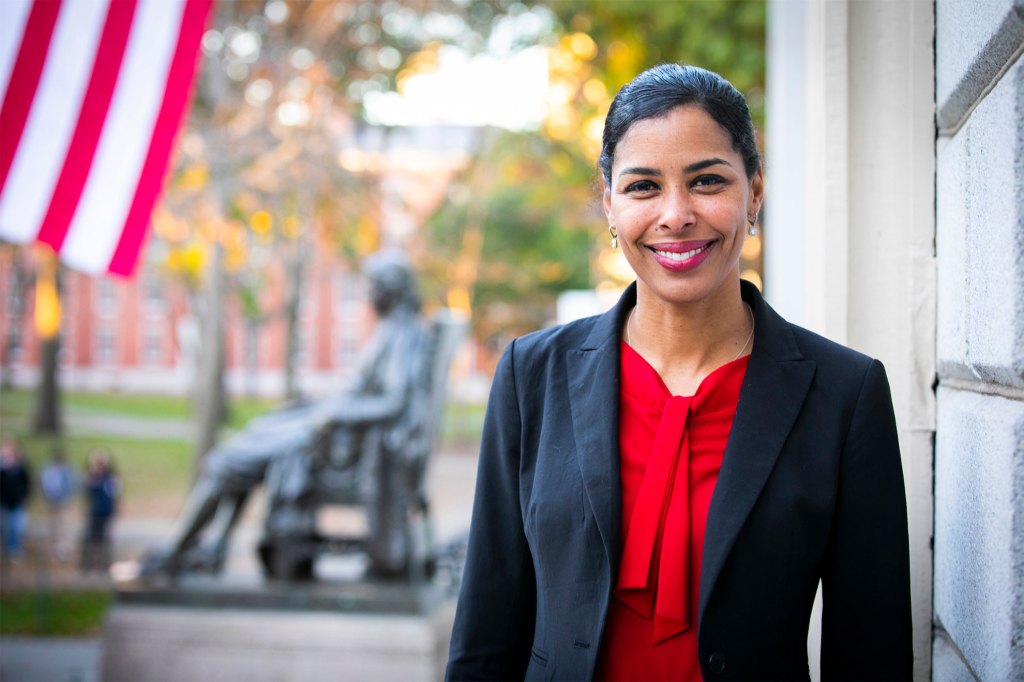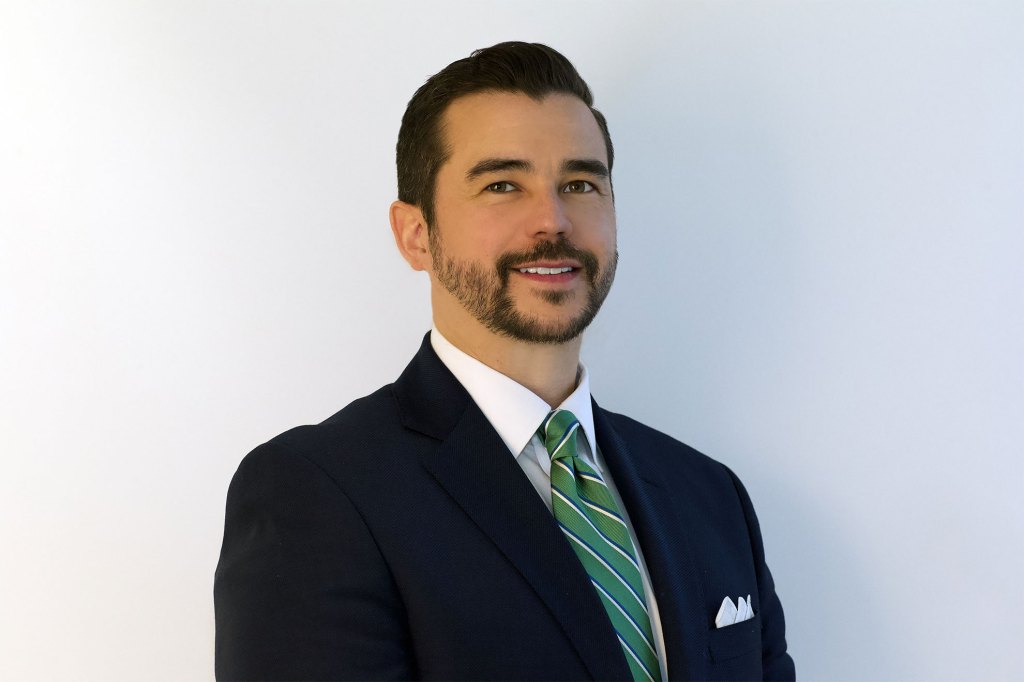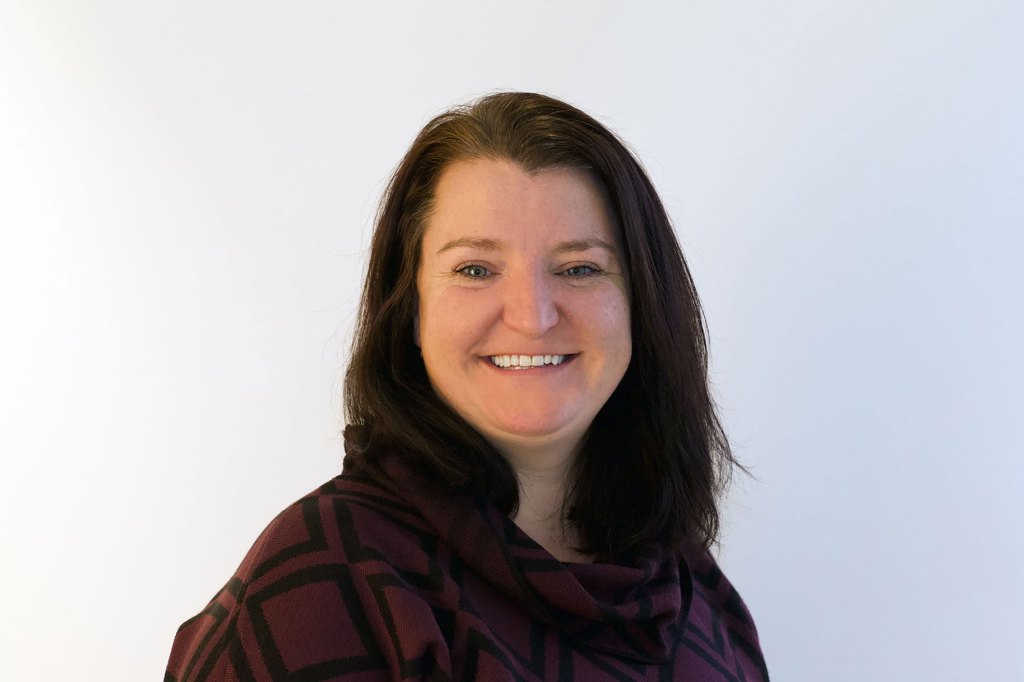Harvard has expanded its partnership with American Ancestors, with the nation’s oldest genealogical nonprofit leading efforts to advance descendant research in the Harvard & the Legacy of Slavery Initiative. The University began the collaboration in 2022 upon the creation of the initiative, which was established to implement the recommendations of the Presidential Committee on Harvard & the Legacy of Slavery.
“American Ancestors is recognized globally for the thoughtfulness and rigor of its research efforts,” said Harvard University President Alan M. Garber in a Jan. 23 announcement. “We look forward to the expertise and skill with which [they] will continue to build on the foundation we laid in 2022.”
The initiative established the Harvard Slavery Remembrance Program, which includes the work being led by American Ancestors to research the individuals enslaved by Harvard leaders, faculty, and staff, and their descendants.
“Slavery was such a dark moment in our nation’s history, and through this research, we have an opportunity to bring light and greater understanding of its legacy for today,” said Evelynn Hammonds, a member of the initiative’s advisory council and the Barbara Gutmann Rosenkrantz Professor of the History of Science and professor of African and African American Studies, and professor in the Department of Social and Behavioral Sciences, T.H. Chan School of Public Health.
The Slavery Remembrance Program is one of several priorities the initiative is pursuing as the University moves into the next phase of the work to implement the Presidential Committee recommendations.
“In addition to unearthing the sad facts of the history of slavery in our University’s history, this research is reconstructing family histories that in most cases have been lost for generations.”
Annette Gordon-Reed
“In addition to unearthing the sad facts of the history of slavery — both directly and indirectly — in our University’s history, this research is reconstructing family histories that in most cases have been lost for generations,” said Annette Gordon-Reed, also a member of the advisory council and the Carl M. Loeb University Professor.
Members of the advisory council, such as Henry Louis Gates Jr., director of the Hutchins Center for African and African American Studies, and the Alphonse Fletcher University Professor, are guiding the work of the initiative across its priorities, including the descendant research.
Gates, who also serves as an honorary trustee of American Ancestors and a member of the advisory board for its 10 Million Names project, noted the ability of American Ancestors to tackle the enormity and complexity of researching the family histories of enslaved people — and the value that comes from the research.
“American Ancestors has been the gold standard in genealogical research for more than 100 years and has been a vital research partner to Harvard since 2022. In fact, its researchers are responsible for recovering virtually all the descendants of people enslaved by Harvard officials collected in our database thus far,” Gates said. “The results of their continued research, as interpreted by the advisory council, will be foundational to the engagement the University will have with living direct descendants.”
The Gazette recently sat down with Sara Bleich, vice provost for special projects and leader of the Harvard & the Legacy of Slavery Initiative; Ryan J. Woods, president and CEO of American Ancestors; and Lindsay Fulton, chief researcher at American Ancestors, to learn more about the partnership and what this next phase of work looks like.

Sara Bleich.
Stephanie Mitchell/Harvard Staff Photographer
Sara, what kind of research is American Ancestors doing in partnership with Harvard?
When Harvard released the Harvard & the Legacy of Slavery report in 2022, one of the commitments the University made was to identify the direct descendants of those who were enslaved by Harvard leaders, faculty, or staff. It was clear that the 79 enslaved people identified at the time of the report’s release represented only a fraction of those likely enslaved.
Since 2022, American Ancestors has been working on behalf of Harvard to identify additional enslaved individuals and their direct descendants. They will now build on and significantly increase their efforts as part of our expanded partnership.
How does this research fit into the Harvard & the Legacy of Slavery Initiative’s near-term priorities?
Early in the fall semester, we worked with our advisory council to think about our focus as we build on the foundation laid over the last 2½ years. That process reaffirmed three priority areas.
One is memorialization and education, which includes the University’s commitment to create a campus memorial to those whose labor contributed to the growth of Harvard. Our education efforts include continuing to build on initiatives like the creation of new courses, the campus walking tour, and lots of efforts to educate the Harvard community and beyond about Harvard’s complicity in slavery.
The second area is creating strong and enduring partnerships with Historically Black Colleges and Universities.
The third area is supporting descendant communities; this includes the reparative grant program, which aims to address systemic inequities in Boston and Cambridge and in regional tribal communities, and continuing the direct descendant research. On this last point, we are excited about the expanded partnership with American Ancestors to help us advance and scale descendant research.

Ryan J. Woods.
Claire Vail Photography/American Ancestors
Ryan, can you describe the work that American Ancestors does?
American Ancestors was founded in 1845 as the New England Historic Genealogical Society. We are a not-for-profit national center dedicated to the study of family history, heritage, and culture. We employ a staff of just over 100 individuals who are historians, genealogists, educators, archivists, librarians, and data specialists who help to support our more than 400,000 members and subscribers research their family history.
We do this work in any number of ways, including digitizing records, doing archival research, and publishing new information in the field of genealogy.
In 1870, we established something known as “register style.” It is one of the most widely used and accepted formats for presenting genealogical research in a scholarly fashion. That begins with identifying a person in the past and then researching and presenting their descendants down toward the present.
“What we have done in this work is start in the past, prior to 1870, and then we can identify and establish that person and begin to trace their descendants, essentially knocking down the brick wall from behind.”
Ryan J. Woods
Where does the Harvard research stand right now?
To date, the Harvard Slavery Remembrance Program has identified at least 229 Harvard leaders, faculty, and staff who enslaved individuals in the 17th, 18th, and 19th centuries.
Through HSRP-related research we’ve conducted here at American Ancestors, we’ve found thus far that those identified Harvard-associated individuals enslaved as many as 940 people who had as many as 1,211 descendants, who are now deceased, and at least 460 living descendants.
We update these numbers monthly and expect that the numbers will continue to grow as research progresses.
The mathematics of population demographics are such that, as research progresses, the numbers will grow exponentially. If you start with yourself, for example, you have two parents, four grandparents, eight great-grandparents, sixteen great-great-grandparents, and so on, by the time you go back 10 generations, you have 512 10th-great-grandparents.
Looked at from the opposite direction, the past toward the present, if you took somebody, say, born in 1750, they are likely nine to 10 generations beyond someone living today. A person born in 1750, mathematically, will have around 262,000 total descendants, living and deceased. So, as you can see, this research will likely result in a large number of people found.

Lindsay Fulton.
Claire Vail Photography/American Ancestors
Lindsay, how do you do this genealogical research? Does the approach differ depending on the population you are researching?
When people of European descent do work like this to discover their ancestry, they tend to start with themselves and then work back into the past, and they use record sets like vital records and church records. It’s about a specific person. That record was made for them, and then we work back in time.
When we look at enslaved people, you’re basically doubling the research because you have to research the enslavers and the people they enslaved. You research the enslavers and then the record sets created to account for an estate and its objects. We find enslaved individuals mentioned on inventory lists or an enslaver might die and then they leave a probate. That may include the number of acres that they owned, those they enslaved, cows, spoons, and forks. And those are the types of records that we need to use to extend this work back into the past.
Sometimes there might be a collection that is held not at a government entity, but maybe by a public institution. An enslaver or their descendant may have donated their estate records — journals, diaries, etc., to a university or a smaller historical society.
In those cases, we find a treasure trove of information about enslaved people. If an enslaved person had a child, for example, that might be recorded by the enslaver in a journal or diary. I know of an instance where there was a plantation that was reissuing shoes to everyone on the plantation. There was a list of the names of all those individuals and their shoe sizes in a particular year, and that’s why we know who was living there at a particular moment in time.
Those family records can be incredibly helpful, but they are not as easy to find as a census record, tax list, or even probate, for that matter.
Woods: This research can be particularly difficult for someone with enslaved ancestors because you begin to run up against what we refer to in the field as the “brick wall of 1870.” Eighteen-seventy is the first federal census after Emancipation that includes the full names of previously enslaved people.
You can likely get back to 1870, but going further back in the past becomes increasingly more difficult when you start with the present, research back, and then hit that wall.
What we have done in this work is start in the past, prior to 1870, and then we can identify and establish that person and begin to trace their descendants, essentially knocking down the brick wall from behind.
Sara, why does this research matter?
The plain truth is that Harvard leaders, faculty, and staff enslaved individuals. Part of our effort to address this harm is to give individuals their histories back, which is largely unknowable unless you know where to look.
American Ancestors knows how to do this research. They have deep experience in African American genealogy, they know that it’s going to take time, and that you have to look in unusual places.
Through this work, we want to give the gift of history and name people. This is a really important step, and it is something we take very seriously. The University is committed to doing this work and that is why we have engaged the best-in-class partner to do it with us.
Ryan, American Ancestors does this work with all kinds of different organizations. What’s it like when you’re able to give people their family histories?
Engaging in family history enriches lives. It’s a source of joy, education, inspiration, empowerment, and it’s also a means of healing and repair. Decades of research have shown the positive social and emotional benefits of knowing one’s family history. The literature on this is correlated to positive effects on young people, in particular.
There are also studies that look at how engaging in family history has positive effects on adult populations. This has shown that there are social and emotional benefits in family units and that the act of engaging in family history can develop and strengthen cognitive skills.
Sara, how are you beginning to think about engaging with direct descendants in the future?
We have to approach even the initial engagement with direct descendants with the utmost sensitivity. For many, they will be learning about their connection to Harvard’s Legacy of Slavery for the first time through our outreach.
Before we even begin taking further steps, we need to ask what’s most important to them. In our report, the University already expressed an interest in several kinds of activities, such as engaging in dialogue, programming, information sharing, relationship building, and providing educational support.
The other thing that we will do — because we’re not the first to think about engagement with direct descendants — is to look to our partners and other universities and institutions to understand what they did. What worked well? What didn’t work? What can we learn? What can we do differently and better?
There are many possibilities, but most importantly, we must approach this engagement with empathy, humility, grace.
Source link

